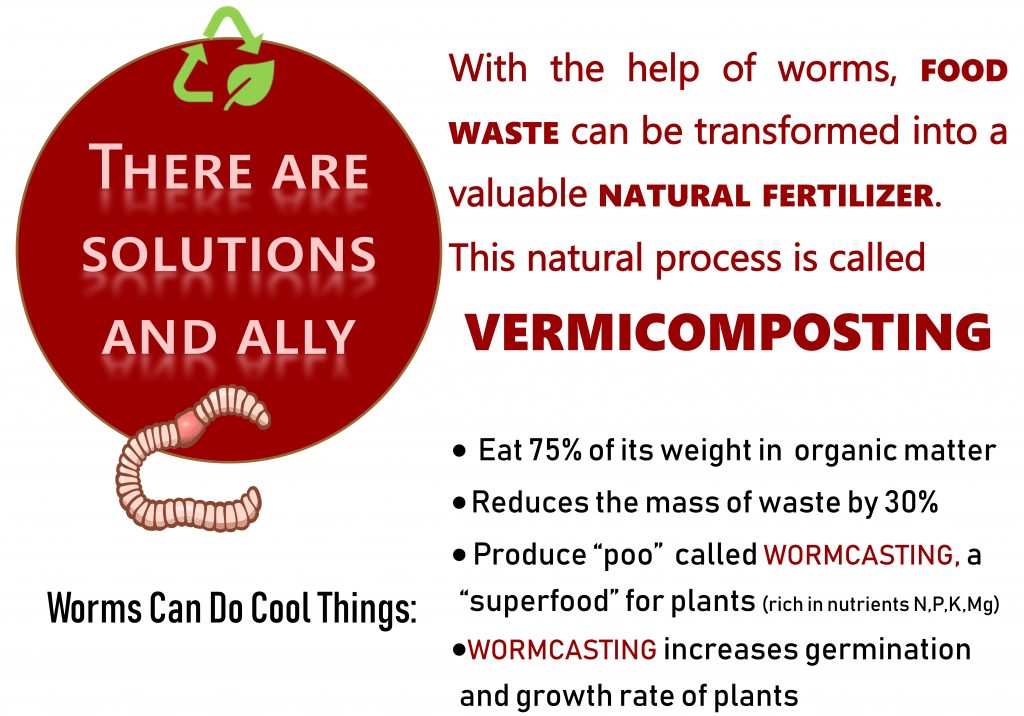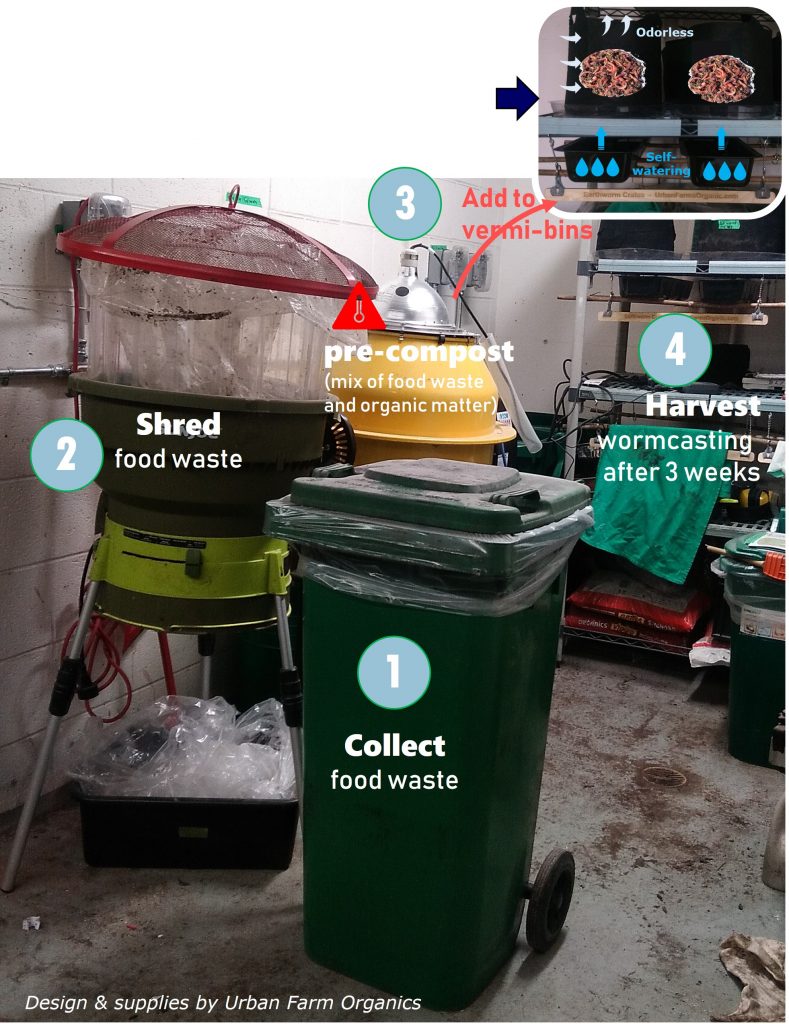Click here to return to Programs
Why Compost?
Because...
- Food waste represents 1/3 of the food we eat
- Food waste is 1, 300, 000, 000 tons of waste per year globally
- Food waste costs energy and money to manage
- Food waste impacts our environment
Solution...

The worms help tranform the food waste into a valuable natural fertilizer called vermicompost.
Benefits of vermicomposting:
- provides nutrition's to the soil
- increases the soil's ability to hold nutrients in a plat-available form
- improves the soil structure
- improves the aeration and internal drainage of heavy clay soils
- increases the water holding ability of sandy soils
- provides numerous beneficial bacteria
How it's done at UTSC:

Step 1: Collect the food waste
Step 2: Shred the food waste
Step 3: Add the food waste to the vermi-bins
Step 4: Harvest the wormcasting after 3 weeks
And the fun part is worm harvesting - by hand!
We produced about 30 kg of wormcasting since the beginning of our production (July 2019) and our facility currently produces about 10 kg of wormcasting every month. This natural fertilizer is used in the raised beds at the campus farm and also in the planters at the IC rooftop garden. Our goal to move forward is to increase the production of wormcasting to be able to convert about 100L of food waste every week. This represents about 1/4 of the weekly food waste produced by the campus cafeteria.